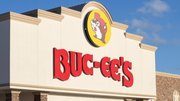Article
Retail Customer Experience Executive Summit: 'We know where you are'
Panelists chat about how to get consumers on board with location-based marketing.

August 10, 2011
The days when consumers bought into everything a product claimed are long gone.
"As a consumer, you knew nothing," said Doug Stephens of Retail Prophet Consulting, who moderated a panel called "We Know Where You Are - Location-based Marketing" Wednesday at the Retail Customer Experience Executive Summit. "If I told you a product has X, Y and Z, you had to believe it."
That all started to change in the 1980s as superstores became popular, and in 1995 the Internet started to provide consumers with even more product info.
The consumer was getting a little smarter but not that much smarter, as the brands were posting most of the info shoppers were reading on the Web, Stephens said.
"Today we have all the access we want," he said. "The economy and shifting demographics have created a powerful consumer," which has changed the relationship between the retailer and consumer.
The new retailer dilemma
This new consumer/retailer dynamic has also changed the marketing game, according to Stephens, who said during the session that location-based marketing is one way for brands to help control some of the info consumers receive about them.
During the session, panelists Asif khan, of the Location-Based Marketing Association, Kim Garretson with Ovative group and Mark Mosiniak of Best Buy Mobile also weighed in on the importance of location-based marketing, which delivers content directly to the user of a mobile device dependent upon his or her location. Location information determined by mobile phone tracking and other emerging real-time locating system technologies like Wi-Fi or RFID can be used to customize media content on the device.
For example, Foursquare.com allows consumers to virtually "check in" on their phones when entering different places, including stores and restaurants. This allows retailers to know who is in their stores and when and also makes it easy for them to send consumers special offers.
Privacy issue
As with any new technology, privacy issues are part of the discussion surrounding location-based marketing, Stephens said.
"Are we making a mountain of a molehill?" he asked. "We've seen this all before with ATMs, for example."
Mosiniak said that in the past consumers have not been comfortable with revealing their locations, especially women, but it's the job of the retailer to show its benefits.
"You have to tell them why it will help them and in the right way," he said. "If we veer off and are doing something simply for our own benefit, it's not going to work."
Consumers are already coming around, according to Kahn, who said consumer adoption is always a little slow with new technology but that customer participation with location-based media is quickly increasing. A series of reports from Pew Research showed that 4 percent of the U.S. population was using services like Foursquare last year, and it's already up to 12 percent now.
One of the key reasons for the number not being up around 20 or 30 percent is that some consumers are concerned about sharing their location for fear of stalkers, tracking and big-brother type issues.
Those fears will be laid to rest as more people see the benefits of location-based marketing, Mosiniak said. Plus, consumers usually have to opt-in to report their locations, so it's not like companies are keeping tabs on people who don't want to participate. Plus, there is never a need to "check in" at home, so marketers or "potential stalkers" would never have that info.
Kahn said the government may eventually step in with "a do not locate list," similar to the "do not call list." But, he added, there's a small number of people who even want to be on those lists.
For more information about marketing programs, click here.
 ChatGPT
ChatGPT Grok
Grok Perplexity
Perplexity Claude
Claude




